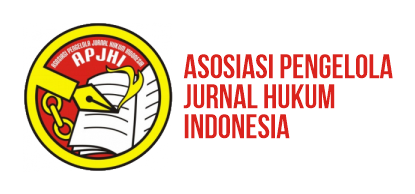EXECUTION OF DECISIONS OF THE INDUSTRIAL RELATIONS COURT WITH PERMANENT LEGAL FORCE (INKRACHT)
Main Article Content
Daniel Ritonga*
Achmad Fitrian
Gatut Hendro
The research will discuss the execution of industrial relations court decisions with permanent legal force, aiming to reveal and analyze how the process of implementing industrial relations court decisions with permanent legal force and what factors hinder the execution of industrial relations court decisions with permanent legal force. This is a literature study using normative legal research.
The data collected by library research, namely by the study of written information about the law that comes from various sources and is widely published and is needed in normative legal research. The findings highlight that the procedure for the execution of industrial relations court decisions that have permanent legal force has not been explicitly regulated in Law Number 2 of 2004 concerning Industrial Relations Dispute Settlement. However, Industrial Relations Dispute Settlement confirms that the Industrial Relations Court applies procedural law applicable to civil procedural law within the General Courts as stated in Article 57 of Industrial Relations Dispute Settlement. The lack of good faith on the part of the losing party to voluntarily carry out their obligations as stated in the verdict is one of the factors impeding the execution of the Industrial Relations Court's decision, which has permanent legal force. In addition, it is difficult for the winning party, in this case the workers, to determine which company assets can be executed against the losing party, and the execution cost is too high for the court to issue an execution order.
Abdulkadir, M. (2004). Hukum dan penelitian hukum. PT. Citra Aditya Bakti, Bandung.
Asikin, Z. (2004). Pengantar Metode Penelitian Hukum. Jakarta: Raja Grafindo Persada.
Clarke, R. v. (2012). Opportunity makes the thief. Really? And so what? Crime Science, 1(1), 1–9.
Erwin, Y. P. (2015). Kajian Yuridis Mengenai Pelaksanaan Eksekusi Dalam Pengadilan Hubungan Industrial (Juridical Study Of The Execution Of Industrial Relations Court). Jurnal Legislasi Indonesia, 12(4), 1–21.
Harahap, M. Y. (2007). Ruang lingkup permasalahan eksekusi bidang perdata. Sinar Grafika.
Hariyanto, A. W. W. (2019). Pelaksanaan Putusan (Eksekusi) Perkara Perselisihan Hubungan Industrial Terhadap Badan Usaha Commanditaire Vennootschap (Studi Putusan Mahkamah Agung Republik Indonesia Nomor 828k/Pdt.Sus-Phi/2016). SOL JUSTICIA, 2(2), 132–153.
Littlejohn, C. (2020). Truth, knowledge, and the standard of proof in criminal law. Synthese, 197(12), 5253–5286.
Maryono, D., & Azhar, M. (2018). Eksekusi Putusan Pengadilan Hubungan Industrial: Beberapa Catatan Masukan RUU Hukum Acara Perdata. Administrative Law and Governance Journal, 1(3), 345–350.
Muhammad, A. (2000). Hukum acara perdata Indonesia. Citra Aditya Bakti.
Soekanto, S. (2006). Beberapa Masalah Hukum dalam Kerangka Pembangunan di Indonesia. Jakarta: UI Press.
Sudja’i, & Mardikaningsih, R. (2021). Correlation Of Worker Welfare And Industrial Relations. CASHFLOW : Current Advanced Research On Sharia Finance And Economic Worldwide, 1(1), 29–32.
Suyuthi, W. (2004). Sita dan eksekusi: praktek kejurusitaan pengadilan. Tatanusa.
Tegnan, G. G. H., & Isra, S. (2016). Rule of Law and Human Rights Challenges in South East Asia: A Case Study of Legal Pluralism in Indonesia. Available at SSRN 2836333.















